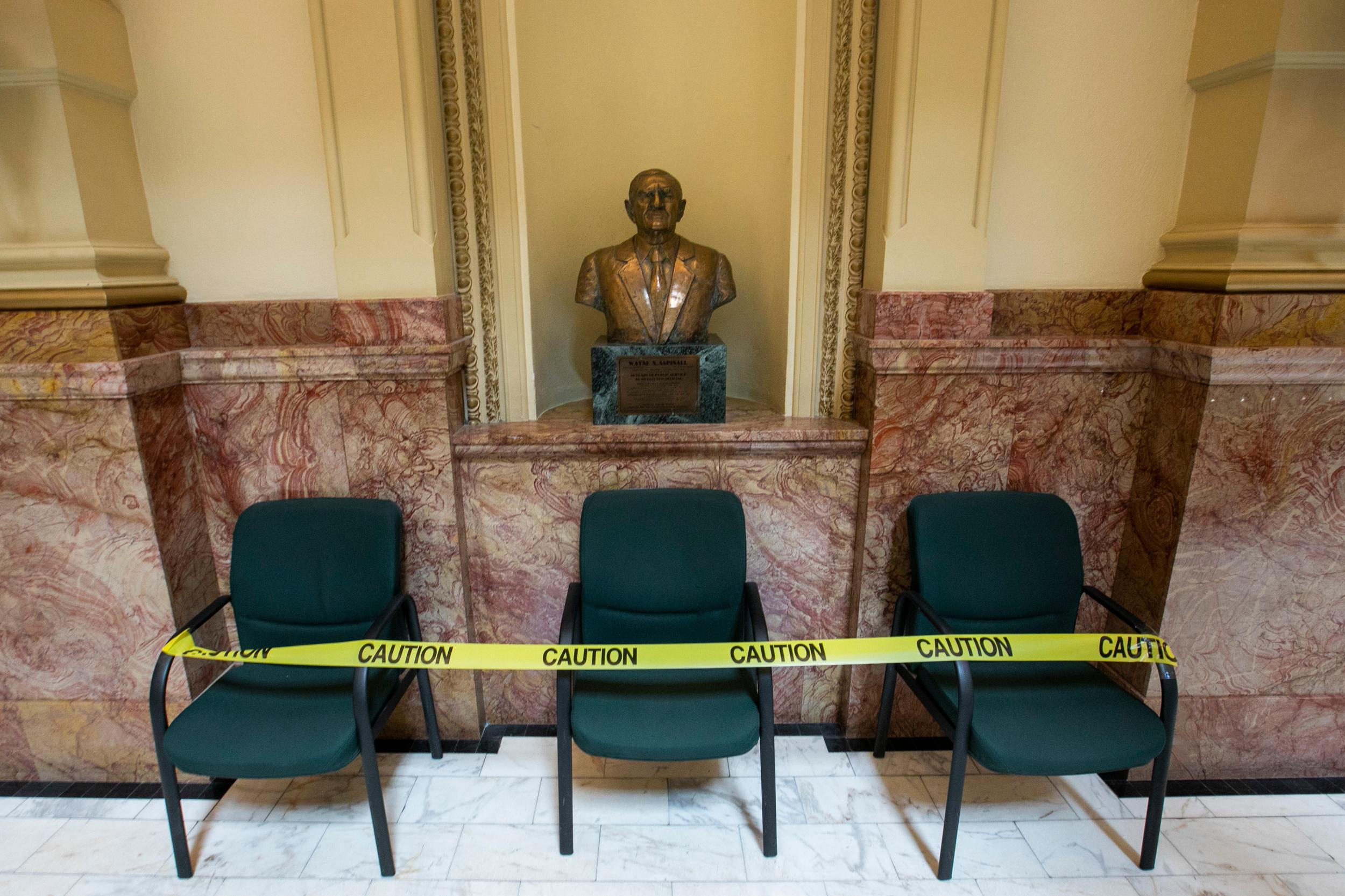
Colorado’s annual legislative session will begin Wednesday without much of the usual pomp and pageantry or sweeping speeches. And then break again after three days for a nearly-unprecedented pause.
This subdued start and planned hiatus comes against the backdrop of the raging COVID-19 pandemic and the violent insurrection at the nation’s capitol last week. Lawmakers and capitol staff are on high alert, preparing for protests that may occur around the building over the next week.
“Usually opening days are joyous celebrations. And I think this opening day is going to be very somber,” said Democratic Sen. Faith Winter of Westminster. “You always take on a certain degree of risk being in the public spotlight and making people angry, and sometimes that anger could react in a way that's not safe. However, going into session this time, the risk feels much greater.”
Democratic legislative leaders’ decision to temporarily pause the session came well before last week’s assault on the US Capitol and the warning from the FBI that state capitols could be the next targets. The goal is to delay all but their most urgent work until vaccines are more widely available in the community.
“Everything's going to look a lot different than it has in the past,” said incoming Democratic Speaker of the House Alec Garnett. “We're still in the midst of a once-in-a-hundred-year pandemic and the bulk of our work won't start really in earnest until Feb. 16.”
State lawmakers are slated to start receiving the first dose of the COVID-19 vaccine this week, ahead of some others that were originally deemed a higher priority in the next phase of vaccinations.
Some legislators have told CPR they do not plan to get a vaccine because of personal objections, medical concerns or a belief that they would be jumping the line ahead of others on the priority list. Non-partisan legislative staff and reporters who work inside the capitol, including those from Colorado Public Radio, are also being offered the vaccine
“By no means are we taking vaccines away from others that absolutely need it more than us, but I also think it's important for the continuation of our state government that the legislature is able to meet as the constitution requires,” said Democratic Senate Majority Leader Steve Fenberg. He said he believes vaccines are necessary to reduce the risk of outbreaks inside the capitol building, “so that we can meet safely without putting people at risk being part of the problem and increasing COVID cases.”
COVID safety protocols have been a divisive topic at the legislature since the summer. So far, legislative leaders have not enforced recommendations for lawmakers to wear masks inside the House and Senate, although most do wear masks. Members of the public are supposed to wear them but it’s not clear how much that will be enforced. In mid-December people who attended an election integrity hearing gathered inside the Capitol hallways without masks.
A small number of lawmakers are still expected to work remotely through the start of session.
“I look forward to getting this started and hope the vaccine is effective in reducing the threat of COVID-19,” said Senate Minority Leader Chris Holbert. “So that when we come back in February, there's more comfort, not just among members and staff, but also the public being here in their Capitol. This is their building.”
Legislative leaders have not offered a lot of specifics on their priorities when the session fully gets underway but say economic recovery from the pandemic will be high on the list. Holbert says he wants to find ways to give the legislature more decision-making power under any future declared state of emergency. Through the course of the pandemic, Gov. Jared Polis’ use of extraordinary executive powers has been a sticking point with Republican leaders.
“We're not interested in criticizing governor, Jared Polis. I know other people have done that, but our question is, when this happens again, should the legislature have a role?”
Democratic Rep. Leslie Herod, who serves on the powerful Joint Budget Committee, said she thinks a lot of her colleagues will be focused on how the country and state can turn a page “on this fairly dark time in our nation's history.”
“It is incumbent upon all of us as leaders, not just elected leaders, but as people, to move past and work through our issues as a nation, when it comes to race and supremacy, these insurgent activities and how we're going to move forward as a country. We can't do it without reconciliation,” she said.








